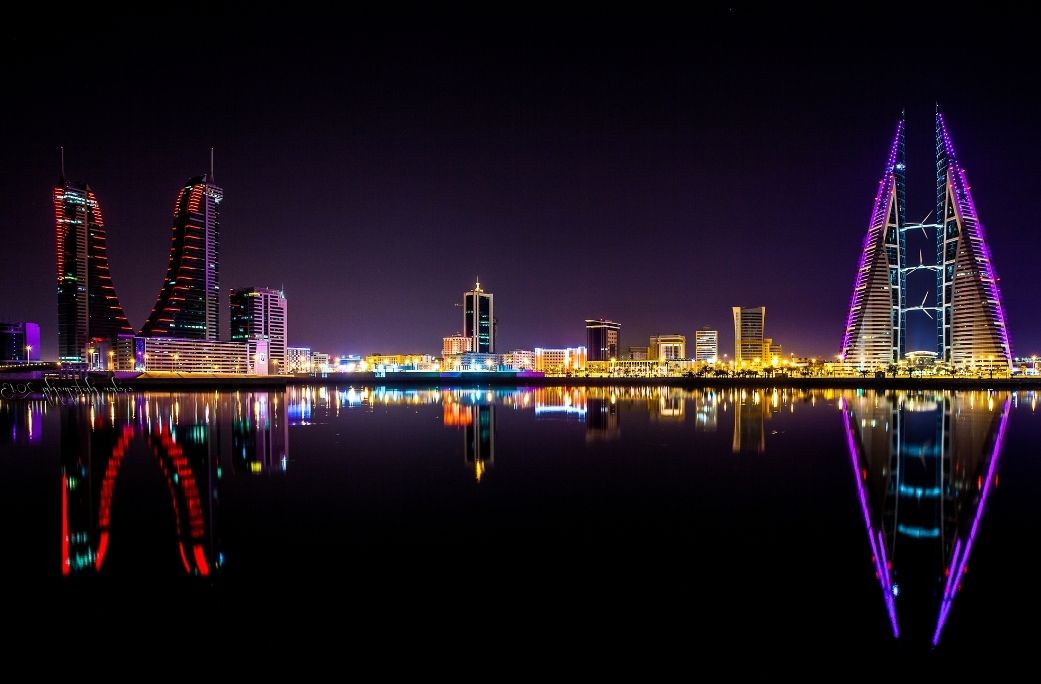The Gulf area, encompassing countries such as Saudi Arabia, the United Arab Emirates (UAE), Oman, Kuwait, and others, has experienced remarkable economic growth in recent years. These nations have taken significant strides in diversifying their economies, reducing dependence on oil, and embracing sectors such as tourism, finance, logistics, and technology. This article explores the economic growth trajectories of key Gulf countries, highlighting their unique contributions to the region’s overall prosperity.
Saudi Arabia: A Hub of Economic Activity
Saudi Arabia, the largest economy in the Gulf region, has been on a transformative journey towards economic diversification and sustainable growth. With its ambitious Vision 2030 initiative, the Kingdom aims to reduce its reliance on oil revenues, promote non-oil sectors, attract foreign investments, and create a thriving knowledge-based economy which positively appears on its stock trading market. This article explores the key drivers behind Saudi Arabia’s economic growth and highlights the sectors that are shaping its future.
Vision 2030: A Blueprint for Economic Transformation
Vision 2030, unveiled in 2016, serves as the guiding framework for Saudi Arabia’s economic diversification and social development. The comprehensive plan focuses on three key pillars: a vibrant society, a thriving economy, and an ambitious nation. By diversifying the economy, enhancing the quality of life for its citizens, and positioning itself as a global investment powerhouse, Saudi Arabia aims to achieve sustainable and inclusive growth.
Diversification Efforts: Beyond Oil
Historically, Saudi Arabia’s economy has heavily relied on oil revenues. However, the government’s commitment to diversification has led to significant progress in non-oil sectors. Key areas of focus include:
- Tourism and Entertainment: The Kingdom has made significant investments in developing its tourism and entertainment sectors. Initiatives such as the Red Sea Project, NEOM, and Lidiya aim to create world-class tourist destinations, entertainment hubs, and luxury resorts. Opening tourist visas, expanding cultural events, and investing in infrastructure have contributed to attracting international visitors and boosting economic growth.
- Manufacturing and Industry: Saudi Arabia has prioritized the development of its manufacturing and industrial sectors. The establishment of industrial cities, such as King Abdullah Economic City and Jazan Economic City, has attracted local and foreign investments. The focus on industries like petrochemicals, automotive, aerospace, and renewable energy has created job opportunities and contributed to economic diversification.
- Knowledge-based Economy: The Kingdom aims to foster innovation and develop a knowledge-based economy. Initiatives like the development of smart cities, investment in research and development, and the establishment of specialized economic zones, such as King Abdullah University of Science and Technology (KAUST) and the King Salman Energy Park (SPARK), promote entrepreneurship, research, and technological advancements.
United Arab Emirates (UAE): A Hub of Economic Activity
The UAE, comprising the dynamic cities of Dubai and Abu Dhabi, has been a driving force behind the Gulf area’s economic growth. Dubai has become a global center for trade, finance, and tourism, while Abu Dhabi has focused on diversification through sectors like finance, industry, and renewable energy. The UAE’s success can be attributed to its world-class infrastructure, business-friendly policies, and strategic location, attracting international investors, and fostering economic growth.
Oman: Unlocking Potential through Economic Reforms
Oman has embarked on an economic diversification journey through its Vision 2040 program. The country aims to develop sectors such as logistics, tourism, manufacturing, fisheries, and mining. Oman’s strategic location along major shipping routes, coupled with ongoing infrastructure projects like the Duqm Special Economic Zone, has positioned it as an attractive investment destination. The country’s commitment to economic reforms and private sector participation has contributed to its sustained growth.
Kuwait: Embracing Economic Reforms
Kuwait has recognized the need for economic reforms and diversification to reduce reliance on oil revenues. The country aims to promote private sector participation, attract foreign investments, and develop sectors such as finance, logistics, real estate, and healthcare. Initiatives like the Kuwait Vision 2035 and the Silk City development project have created opportunities for economic growth and job creation, ensuring long-term sustainability. Amidst this economic evolution, small businesses have been targeting several Kuwait business ideas to expand into, contributing to the region’s economic diversity and fostering a climate of entrepreneurial creativity.
Bahrain and Qatar: Accelerating Economic Transformation
Bahrain and Qatar have also made significant strides in diversifying their economies. Bahrain has focused on sectors such as finance, tourism, manufacturing, and digital technology. It has established Bahrain International Investment Park and Bahrain FinTech Bay to attract foreign investments and foster innovation. Qatar, as the host of the FIFA World Cup 2022, has invested heavily in infrastructure development, hospitality, and tourism. The country’s efforts to develop a knowledge-based economy have yielded positive results, promoting economic growth and diversification.
Conclusion:
The Gulf area, comprising countries such as Saudi Arabia, the UAE, Oman, Kuwait, Bahrain, and Qatar, has demonstrated remarkable economic growth through diversification and visionary initiatives. These nations have recognized the need to reduce dependence on oil and embrace sectors such as tourism, finance, logistics, and technology. By attracting foreign investments, implementing economic reforms, and fostering innovation, they have created vibrant and resilient economies. The Gulf area commitment to sustainable development ensures a prosperous future, as it continues to embrace diversification and adapt to the evolving global economic landscape.

COMMENTS